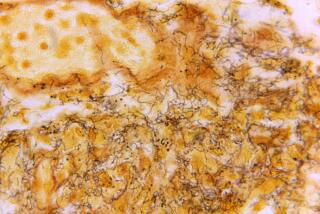Men with smaller testes make better fathers, study claims
Smaller testicle size in men appears to be linked to greater involvement in child rearing, according to Georgia researchers.
The study, published recently in the journal PNAS, was conducted by anthropologists at Emory University in Atlanta and involved 70 local fathers ages 21 to 43.
The study participants, who were recruited with fliers and Facebook advertisements, all had children who were 1 or 2 years old. Researchers measured the men’s testosterone levels and testes volume, and performed brain scans while they were shown pictures of their own children’s faces and those of strangers.
The mothers were also surveyed on the father’s level of parenting involvement.
“Fathers’ testicular volume and testosterone levels were inversely related to parental investment and testes volume was inversely correlated with nurturing-related brain activity when viewing pictures of their own child,” wrote the research team, led by anthropology researcher Jennifer Mascaro.
Researchers say the study was intended to determine whether biological factors might account for absentee fathers.
“In modern Western societies, some fathers choose not to invest in their children,” the authors wrote. “Why do some men make this choice? Life History Theory offers an explanation for variation in parental investment by positing a trade-off between mating and parenting effort, which may explain some of the observed variance in human fathers’ parenting behavior.”
Previous studies have suggested that decreases in testosterone may suppress mating efforts, potentially channeling resources toward paternal care of infants.
In the Emory study, researches used an MRI to measure testes volume, although only 55 of the fathers agreed to have their genitals scanned. Of those, one was excluded from the study when it was found that his testes were larger than “any recorded value found in the literature.”
Researchers also used the MRI to monitor activity in the ventral tegmental area of the brain, a region implicated in parental motivation.
“Collectively, these data provide the most direct support to date that the biology of human males reflects a trade-off between mating and parenting effort,” authors wrote.







